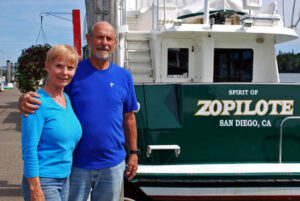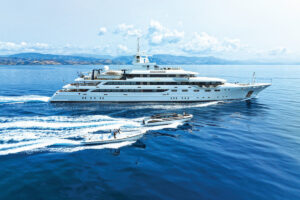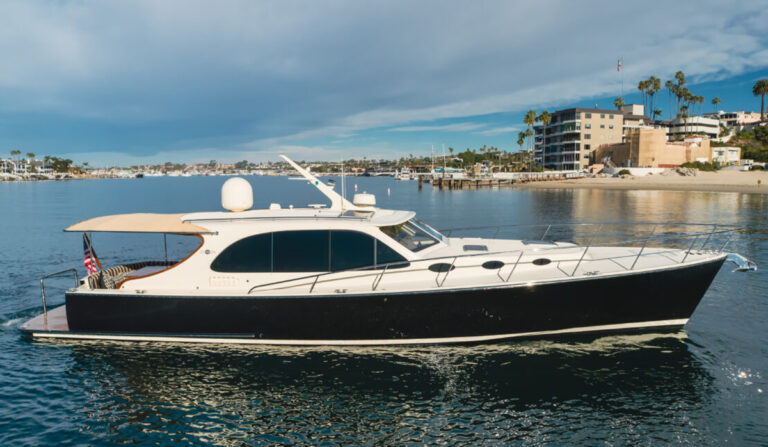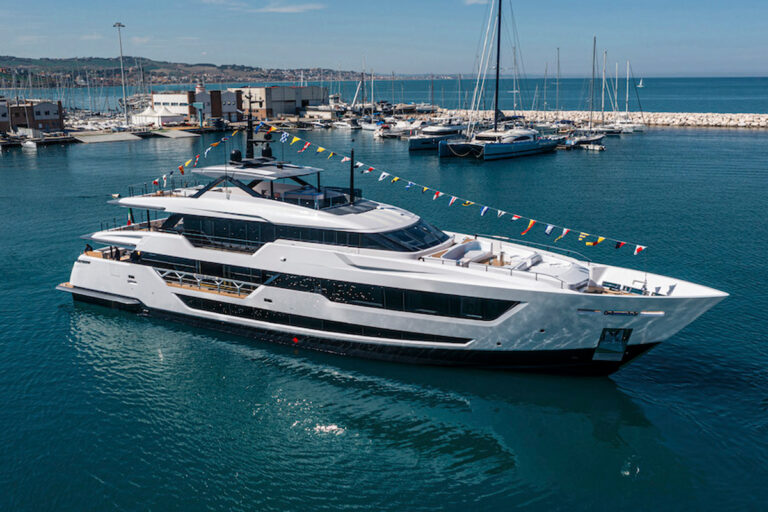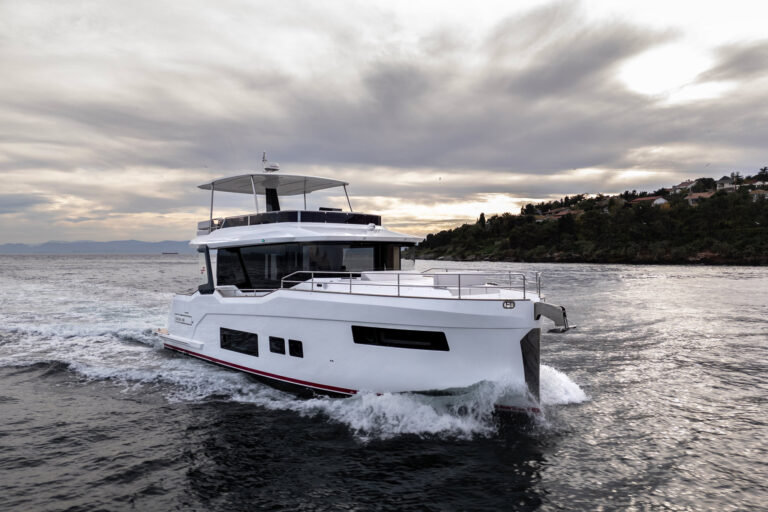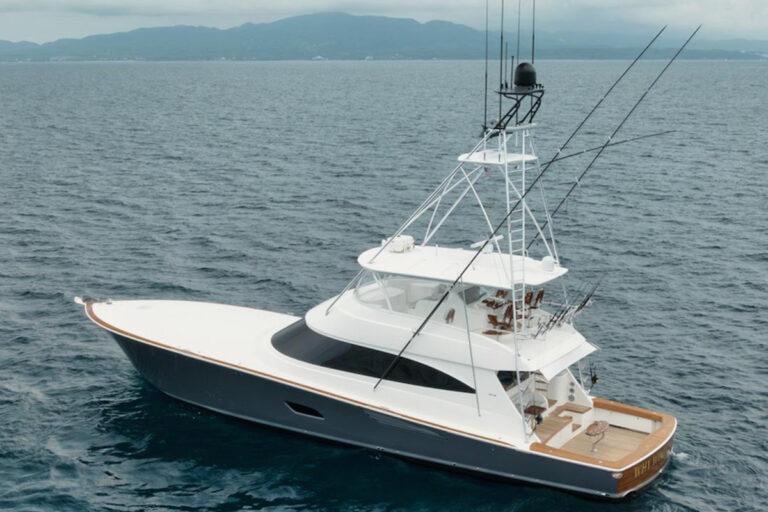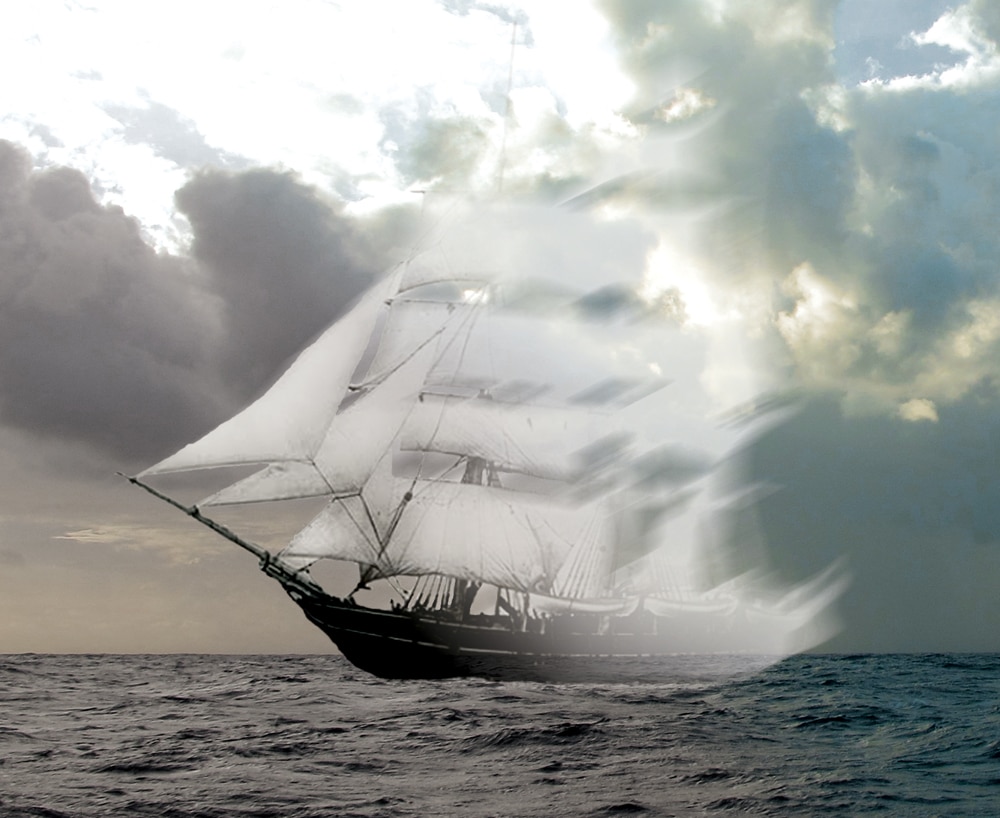
The Mirror of the Sea
Joseph Conrad, the Polish-born English author, spent 20 years of his life working at sea, before establishing himself as one of the greatest writers of the twentieth century. Though he’s better known for his fiction, The Mirror of the Sea, published in 1906, is a collection of Conrad’s wonderful autobiographical reflections on man and his relationship to ships and the ocean. It is the first in a series of classic sea literature we’ll be excerpting in the pages of Yachting.
XVI
Often I turn with melancholy eagerness to the space reserved in the newspapers under the general heading of “Shipping Intelligence.” I meet there the names of ships I have known. Every year some of these names disappear — the names of old friends. “Tempi passati!“
The different divisions of that kind of news are set down in their order, which varies but slightly in its arrangement of concise headlines. And first comes “Speakings” — reports of ships met and signalled at sea, name, port, where from, where bound for, so many days out, ending frequently with the words “All well.” Then come “Wrecks and Casualties” — a longish array of paragraphs, unless the weather has been fair and clear, and friendly to ships all over the world.
On some days there appears the heading “Overdue” — an ominous threat of loss and sorrow trembling yet in the balance of fate. There is something sinister to a seaman in the very grouping of the letters which form this word, clear in its meaning, and seldom threatening in vain.
Only a very few days more — appallingly few to the hearts which had set themselves bravely to hope against hope — three weeks, a month later, perhaps, the name of ships under the blight of the “Overdue” heading shall appear again in the column of “Shipping Intelligence,” but under the final declaration of “Missing.”
“The ship, or barque, or brig So-and-so, bound from such a port, with such and such cargo, for such another port, having left at such and such a date, last spoken at sea on such a day, and never having been heard of since, was posted to-day as missing.” Such in its strictly official eloquence is the form of funeral orations on ships that, perhaps wearied with a long struggle, or in some unguarded moment that may come to the readiest of us, had let themselves be overwhelmed by a sudden blow from the enemy.
Who can say? Perhaps the men she carried had asked her to do too much, had stretched beyond breaking-point the enduring faithfulness which seems wrought and hammered into that assemblage of iron ribs and plating, of wood and steel and canvas and wire, which goes to the making of a ship — a complete creation endowed with character, individuality, qualities and defects, by men whose hands launch her upon the water, and that other men shall learn to know with an intimacy surpassing the intimacy of man with man, to love with a love nearly as great as that of man for woman, and often as blind in its infatuated disregard of defects.
XVII
The unholy fascination of dread dwells in the thought of the last moments of a ship reported as “missing” in the columns of the Shipping Gazette. Nothing of her ever comes to light — no grating, no lifebuoy, no piece of boat or branded oar — to give a hint of the place and date of her sudden end. The Shipping Gazette does not even call her “lost with all hands.” She remains simply “missing”; she has disappeared enigmatically into a mystery of fate as big as the world, where your imagination of a brother-sailor, of a fellow-servant and lover of ships, may range unchecked.
And yet sometimes one gets a hint of what the last scene may be like in the life of a ship and her crew, which resembles a drama in its struggle against a great force bearing it up, formless, ungraspable, chaotic and mysterious, as fate.
It was on a gray afternoon in the lull of a three days’ gale that had left the Southern Ocean tumbling heavily upon our ship, under a sky hung with rags of clouds that seemed to have been cut and hacked by the keen edge of a sou’-west gale.
Our craft, a Clyde-built barque of 1,000 tons, rolled so heavily that something aloft had carried away. No matter what the damage was, but it was serious enough to induce me to go aloft myself with a couple of hands and the carpenter to see the temporary repairs properly done.
Sometimes we had to drop everything and cling with both hands to the swaying spars, holding our breath in fear of a terribly heavy roll. And, wallowing as if she meant to turn over with us, the barque, her decks full of water, her gear flying in bights, ran at some ten knots an hour. We had been driven far south — much farther that way than we had meant to go; and suddenly, up there in the slings of the foreyard, in the midst of our work, I felt my shoulder gripped with such force in the carpenter’s powerful paw that I positively yelled with unexpected pain. The man’s eyes stared close in my face, and he shouted, “Look, sir! Look! What’s this?” pointing ahead with his other hand.
At first I saw nothing. The sea was one empty wilderness of black and white hills. Suddenly, half-concealed in the tumult of the foaming rollers I made out awash, something enormous, rising and falling — something spread out like a burst of foam, but with a more bluish, more solid look.
It was a piece of an ice-floe melted down to a fragment, but still big enough to sink a ship, and floating lower than any raft, right in our way, as if ambushed among the waves with murderous intent. There was no time to get down on deck. I shouted from aloft till my head was ready to split. I was heard aft, and we managed to clear the sunken floe which had come all the way from the Southern ice-cap to have a try at our unsuspecting lives. Had it been an hour later, nothing could have saved the ship, for no eye could have made out in the dusk that pale piece of ice swept over by the white-crested waves.
And as we stood near the taffrail side by side, my captain and I, looking at it, hardly discernible already, but still quite close-to on our quarter, he remarked in a meditative tone:
“But for the turn of that wheel just in time, there would have been another case of a ‘missing’ ship.”
Nobody ever comes back from a “missing” ship to tell how hard was the death of the craft, and how sudden and overwhelming the last anguish of her men. Nobody can say with what thoughts, with what regrets, with what words on their lips they died. But there is something fine in the sudden passing away of these hearts from the extremity of struggle and stress and tremendous uproar — from the vast, unrestful rage of the surface to the profound peace of the depths, sleeping untroubled since the beginning of ages.

